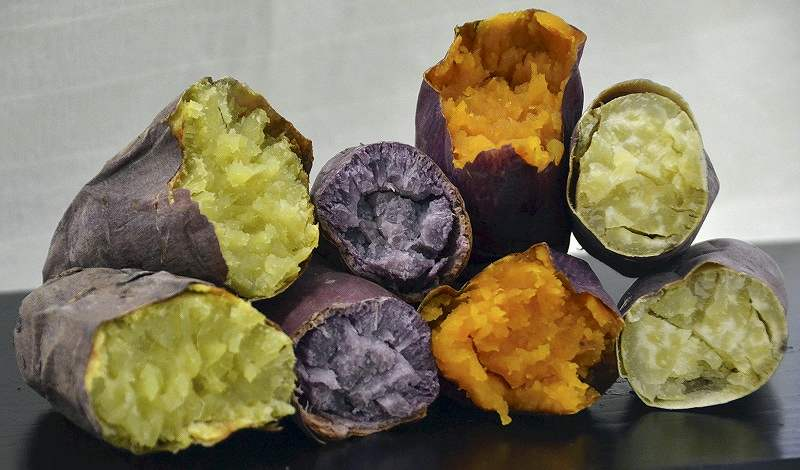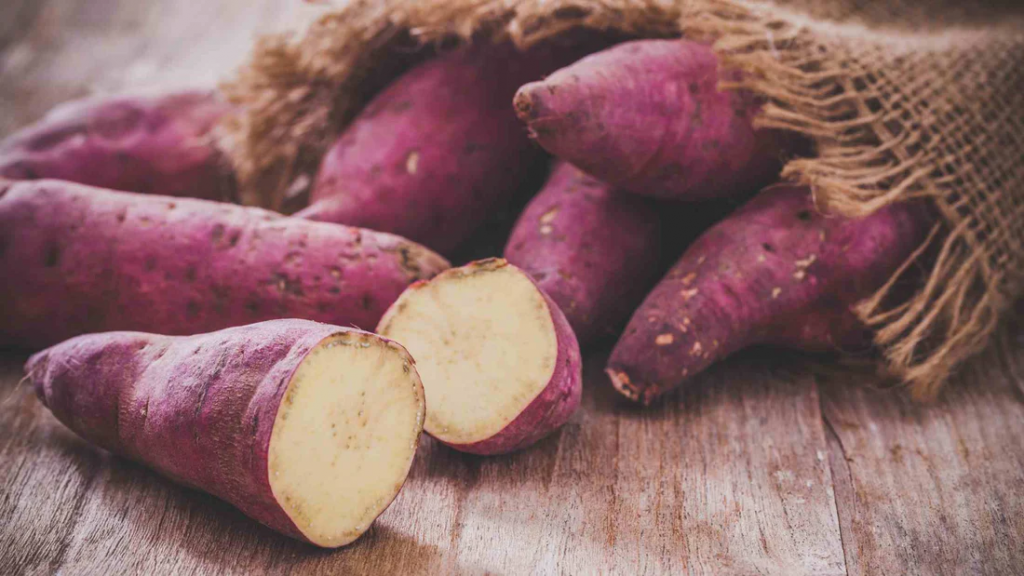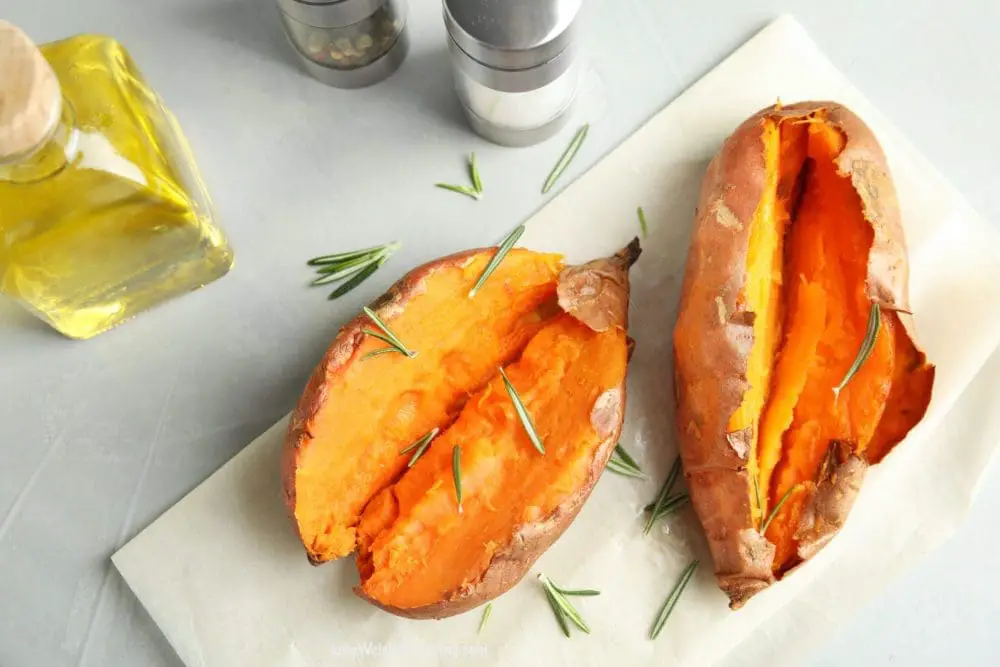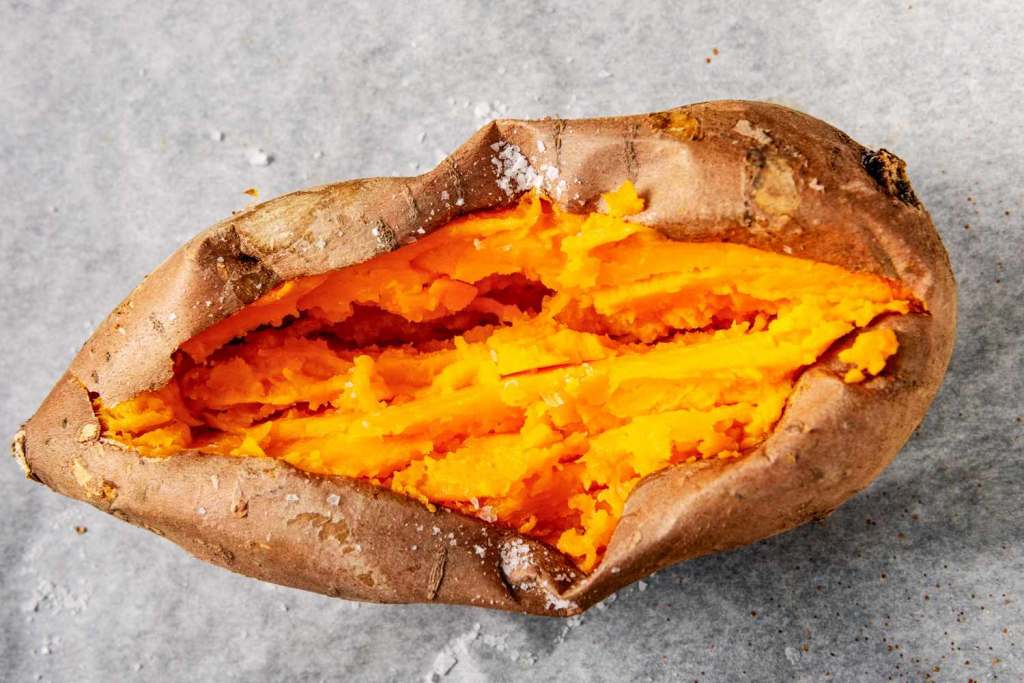Sweet potatoes are often celebrated as one of the healthiest foods on earth. Packed with vitamins, fiber, and natural sweetness, they’ve been praised in nutrition guides and featured on superfood lists. In fact, according to the U.S. Department of Agriculture, Americans consume nearly 7 pounds of sweet potatoes per person every year—and the number is rising.
But here’s the surprising truth: while sweet potatoes can support your health in many ways, they also come with hidden facts that not everyone knows. From nutrient interactions to potential risks for certain people, understanding these details can help you enjoy sweet potatoes wisely and avoid common mistakes.
In this article, we’ll uncover 13 important facts you should know before making sweet potatoes a staple in your diet. Whether you’re eating them baked, mashed, fried, or blended into smoothies, these insights will empower you to make smarter choices and maximize their benefits.
By the end, you’ll know not just why sweet potatoes are special, but also how to prepare and eat them in a way that truly supports your body.

Fact 1: Sweet Potatoes Are Rich in Beta-Carotene
The bright orange color of sweet potatoes is a sign of beta-carotene, a powerful antioxidant that the body converts into vitamin A. This nutrient supports vision, immune function, and skin health. One medium sweet potato can provide more than 100% of the daily recommended intake of vitamin A.
However, your body absorbs beta-carotene better when paired with a small amount of healthy fat. That’s why adding a drizzle of olive oil or a sprinkle of nuts can boost its effectiveness.
Fact 2: Not All Sweet Potatoes Are Orange
Most people picture sweet potatoes as orange, but they also come in purple, white, and even yellow varieties. Each color has its own unique nutrient profile.
- Purple sweet potatoes: High in anthocyanins, antioxidants that may support brain and heart health.
- White sweet potatoes: Lower in sweetness, often preferred by people who want less sugar.
- Orange sweet potatoes: Rich in beta-carotene and popular in American cuisine.
Knowing the variety can help you match your health goals with the right type of sweet potato.

Fact 3: Sweet Potatoes May Affect Blood Sugar
Although sweet potatoes have a lower glycemic index than regular potatoes, they still contain natural sugars and starch. For people with diabetes or insulin resistance, portion size matters.
Tip: Combine sweet potatoes with protein and fiber—like grilled chicken or beans—to prevent sharp blood sugar spikes.
Fact 4: Sweet Potatoes Are High in Fiber
One medium sweet potato contains about 4 grams of fiber, which supports digestion, regulates bowel movements, and may help with weight management. Fiber also slows the absorption of sugars, balancing the impact on blood sugar.
But too much fiber at once may cause bloating or discomfort. Moderation is key.

Fact 5: They Contain Oxalates, Which May Affect Kidney Health
Sweet potatoes are high in oxalates, natural compounds that can contribute to kidney stone formation in sensitive individuals. If you have a history of kidney stones, consult a healthcare provider before consuming them regularly.
Cooking methods like boiling may slightly reduce oxalate content compared to baking.
Fact 6: Sweet Potatoes Can Boost Gut Health
The fiber in sweet potatoes feeds the good bacteria in your gut. Some studies suggest that sweet potatoes may increase the production of short-chain fatty acids, which nourish intestinal cells and support immunity.
Adding fermented foods like yogurt or kimchi alongside sweet potatoes can further improve digestive balance.
Fact 7: They Are Naturally Gluten-Free
For people with celiac disease or gluten sensitivity, sweet potatoes are a safe, naturally gluten-free food. They can easily replace bread, pasta, or flour in certain recipes—think sweet potato toast or sweet potato flour in baking.

Fact 8: Cooking Methods Change Nutrient Levels
The way you cook sweet potatoes matters.
| Cooking Method | Impact on Nutrients |
|---|---|
| Boiling | Retains more beta-carotene, but can cause some water-soluble vitamins (like vitamin C) to leach out. |
| Baking | Concentrates flavor but slightly lowers beta-carotene absorption. |
| Frying | Adds unhealthy fats and increases calorie content. |
Best practice: Bake or steam with minimal oil for the healthiest results.
Fact 9: Sweet Potatoes Support Heart Health
Sweet potatoes are high in potassium, which helps regulate blood pressure by balancing sodium in the body. They also contain antioxidants that may reduce inflammation in blood vessels.
Eating them regularly as part of a balanced diet may lower your risk of heart disease.

Fact 10: They May Support Immune Function
Thanks to their vitamin A and vitamin C content, sweet potatoes play a role in strengthening the immune system. Vitamin C also promotes collagen production, which helps wounds heal faster.
Tip: Combine sweet potatoes with citrus fruits or bell peppers to boost vitamin C intake.
Fact 11: Sweet Potatoes Can Interfere with Certain Medications
Because they are rich in vitamin A, excessive intake may interfere with medications that also influence vitamin A metabolism. People taking isotretinoin (commonly prescribed for acne) or certain immune-modulating drugs should be cautious.
Always check with your doctor if you consume large amounts of sweet potatoes while on medication.
Fact 12: Skin Benefits from Sweet Potato Consumption
Beta-carotene acts like a natural sun shield from the inside out. Regular intake may reduce skin sensitivity to UV rays and support a healthy glow.
Some people even use boiled sweet potato water as a topical rinse for soothing irritated skin—though more research is needed to confirm these effects.

Fact 13: Portion Control Still Matters
Even though sweet potatoes are nutrient-dense, they’re not calorie-free. A medium baked sweet potato has about 100–120 calories. Eating several in one sitting may lead to excess calorie intake, especially if topped with butter, sugar, or marshmallows.
Balance your plate with lean proteins, healthy fats, and vegetables for a well-rounded meal.
Everyday Tips for Enjoying Sweet Potatoes Wisely
- Choose baked or steamed versions over fried.
- Pair with a protein source to stabilize blood sugar.
- Use cinnamon or nutmeg instead of sugar for flavor.
- Try different varieties for different health benefits.
- Practice portion control—half a medium sweet potato may be enough for some people.
Conclusion
Do sweet potatoes cause weight gain?
Not by themselves. Overeating or preparing them with heavy toppings can increase calorie intake.
Are sweet potatoes better than regular potatoes?
They offer different nutrients. Sweet potatoes are higher in vitamin A, while white potatoes have more potassium. Both can be part of a healthy diet.
Can children and older adults eat sweet potatoes safely?
Yes, but always serve them in age-appropriate portions and avoid adding excessive sugar or fat.
Should people with diabetes avoid them?
Not necessarily. Small portions paired with protein and fiber can fit into a balanced diet.
This content is for informational purposes only and does not replace professional medical advice, diagnosis, or treatment. Always consult your healthcare provider before making dietary changes.




